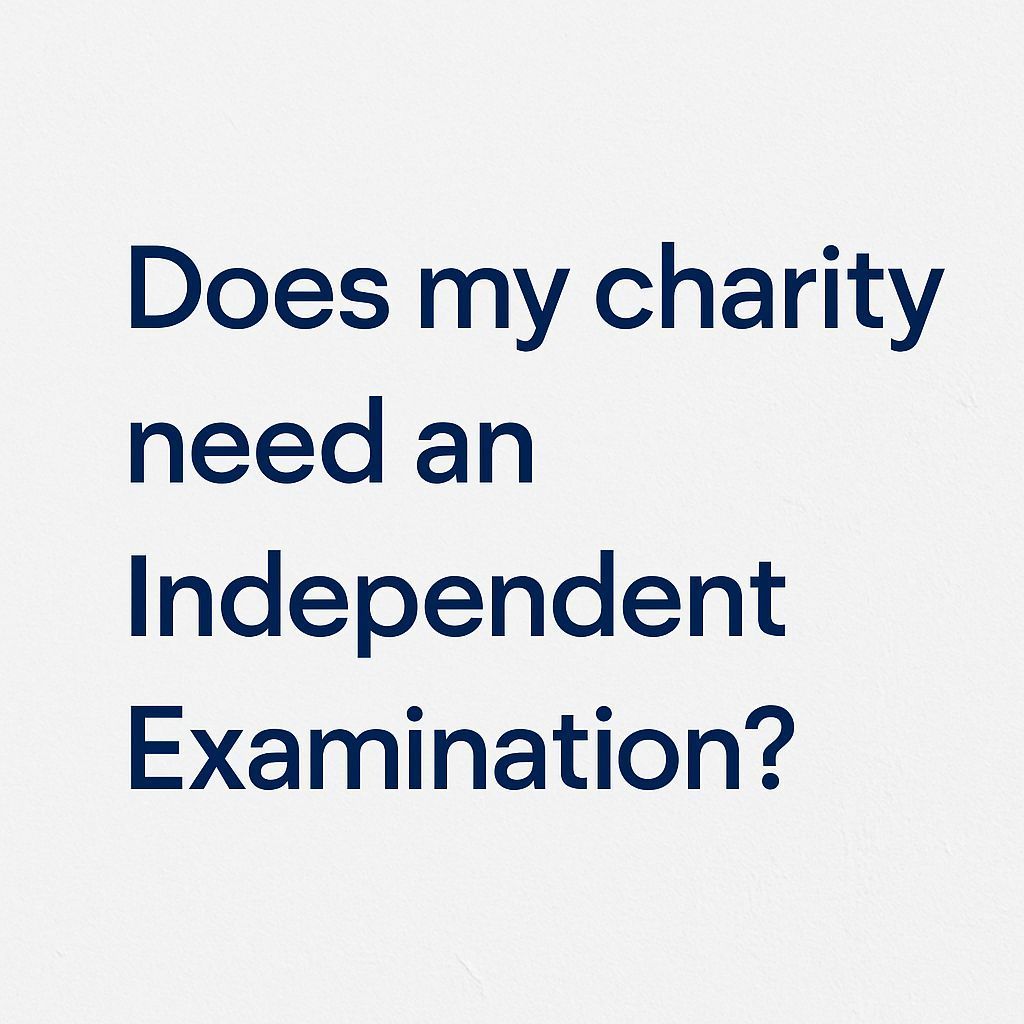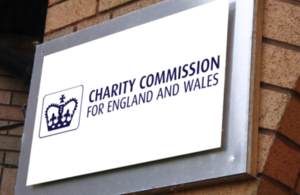£35,000 in Lost Funding Due to Non Compliant Accounts
£35,000 in Lost Funding Due to Non Compliant Accounts

Two charities. £35,000 in lost funding. One common mistake us after discovering they’ve potentially lost over £35,000 in funding opportunities. Why?
Because their Charity Commission filings were non-compliant.
Missing disclosures. Incomplete reports. Easily avoided errors — but costly ones.
Funders are becoming more selective and scrutinise your financial reporting before committing support. Having an accountant who truly understands charity-specific reporting requirements is no longer optional — it’s essential.
✅ If you're unsure whether your charity’s accounts are fully compliant...
✅ If you want to avoid missing out on vital funding.
Get in touch. We specialise in helping charities stay compliant, confident, and funder-ready.

Does your charity need independent examination? If your charity’s income is over £25,000, the answer is yes—you’re legally required to have your accounts independently examined. Here’s how the thresholds work: • Under £25,000: No Independent Examination required, but you must still prepare accounts and a trustees’ annual report. • £25,001 – £250,000: An Independent Examination is required. Your examiner must be independent and have the right financial skills—but they don’t need to be professionally qualified. • Over £250,000 (and under the audit threshold): Your examiner must be independent and a member of a recognised professional body (like ACCA or ICAEW). Why does this matter? A proper Independent Examination strengthens governance, builds funder trust, and helps prevent issues before they arise. If you’re not sure what your charity needs this year, feel free to get in touch

A well-thought-out reserves policy isn’t just a regulatory requirement—it’s a sign of good governance. Yet many charities either don’t have one, or haven’t reviewed it in years. A clear policy helps you: • Demonstrate responsible financial management • Explain to funders and donors how you’re planning for the future • Justify the level of reserves you hold (or don’t hold) • Support decision-making during uncertain times It also helps avoid criticism—charities with large unrestricted reserves but no clear plan for them are more likely to face tough questions from funders, regulators, and the public. The Charity Commission expects your policy to cover: • Why reserves are held • How much is needed • When and how they’ll be used • When the policy will be reviewed If your reserves policy needs a refresh—or you’re not sure where to start— Contact Us to send you a template

The Charity Commission has removed the trustees of The Saint George Educational Trust, following a statutory inquiry that uncovered serious financial mismanagement and governance failures. The charity, based in Hampshire and registered since 1994, was established to promote the Catholic religion and education. However, the inquiry revealed that the charity’s bank account had been used to funnel funds from unidentified sources, on which Gift Aid was incorrectly claimed. In addition, some charitable assets were found to be held in gold bullion by individuals with no official link to the charity. The Commission also found the charity’s online platforms had published content associated with the leader of a far-right political group, as well as a proscribed Islamist terrorist organisation—neither of which aligned with the charity’s stated purposes. As a result, the Commission removed the trustees in January 2025 and appointed Interim Managers to take control of the charity’s affairs. These managers are tasked with settling outstanding debts and redistributing any remaining assets to other charities with similar purposes before closing down the charity entirely. Background and Findings The investigation was launched in October 2022 after concerns were raised about the charity’s online content and whether its activities were aligned with its religious objectives. Key findings from the inquiry include: The charity’s chair allowed the receipt of large ‘donations’ from unknown sources, which were then forwarded to unknown recipients. Gift Aid totalling £80,455.75 was claimed on these funds, with 20% retained by the charity and the rest transferred elsewhere. These claims were later disallowed by HMRC. The Commission successfully recovered £146,166.14, which included the original sum, interest, and penalties. Over £30,000 of the charity’s assets had been converted into gold bullion held by unrelated individuals. Additional valuable religious items, such as rare books, were found in a storage unit not under the charity’s control. There was no evidence the trustees performed any due diligence on incoming funds or how they were spent, representing a complete failure in their legal duties. The charity’s website and social media contained content endorsing far-right activities and a post potentially supporting Hezbollah, a proscribed terrorist organisation in the UK. Regulatory Action Taken To safeguard the charity’s assets, the Commission: Froze over £500,000 of the charity’s funds. Worked with the police to recover and sell the gold bullion. Ensured inappropriate content was removed from online platforms. Issued formal orders to recover and return misused funds to HMRC. With the trustees removed, they are now barred from acting as trustees or holding senior roles in any charity in England and Wales. The appointed Interim Managers have secured remaining assets, identified liabilities, and will oversee the final winding up of the organisation. Any surplus funds will be redirected to other Catholic charities. Statements from the Charity Commission David Holdsworth, Chief Executive of the Charity Commission, commented: “This was a blatant misuse of charitable status and a serious breach of public trust. Our actions have ensured that the falsely claimed public funds have been repaid, and those responsible are barred from charity leadership.” Joshua Farbridge, Head of Compliance Visits and Inspections, added: “The findings of this inquiry will understandably alarm the public. The charity was misused to spread harmful ideologies and make improper financial claims. While the details may sound fictional, this case is very real. We have acted decisively to protect the charity’s remaining assets and ensure appropriate closure.”
